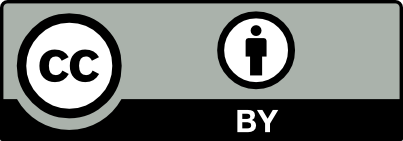Novel thalidomide analogues, “me too” drugs and the Brazilian law
DOI:
https://doi.org/10.3395/vd.v1n3.57Keywords:
lenalidomide, pomalidomide, cost effectiveness, multiple myeloma, teratogenic drugs, thalidomide embryopathyAbstract
In Brazil, thalidomide has been used virtually without interruption since it was launched as a new and revolutionary sedative drug in 1956. After 1965, when its efficacy to treat erythema nodosum leprosum (ENL) was discovered, it was regarded as an essential drug because the prevalence of Hansen’s disease is high in the country. In the 1990s and thereafter myriad novel therapeutic uses for thalidomide (autoimmmune diseases, multiple myeloma, aphthous ulcers in AIDS, and others) have emerged owing to its immunomodulatory and antiangiogenic activities. Owing to a marked teratogenicity, however, the prescription and dispensing of thalidomide to patients is strictly controlled in Brazil and elsewhere. Notwithstanding the stringent regulations, a number of post-1965 cases of thalidomide embryopathy have occurred in Brazil. In 2003, a federal law (Law 10.651/2003) prohibited the sale and dispensing of thalidomide in commercial pharmacies. The law, however, made no provision for teratogenic drug analogues such as lenalidomide and pomalidomide, which have been cleared for marketing in the USA, Europe and other countries. Although they are much more expensive than thalidomide, the clinical superiority of novel ana-logues over thalidomide in multiple myeloma and other conditions remains unproven. Therefore, so far novel analogues can be considered as thalidomide “me too” drugs. This author strongly recommends that an amendment to the current law prohibiting the sale and dispensing of thalid-omide in commercial pharmacies be extended to thalidomide analogues. Moreover, we consider that a demonstration of clinical superiority over thalidomide (through gold-standard comparative efficacy trials) should be an essential requirement for registration of any teratogenic analogue.
Downloads
Downloads
Additional Files
Published
Issue
Section
License
Copyright (c) 2013 Health Surveillance under Debate: Society, Science & Technology (Vigilância Sanitária em Debate: Sociedade, Ciência & Tecnología) – “Visa em Debate”

This work is licensed under a Creative Commons Attribution-NonCommercial-NoDerivatives 4.0 International License.
COPYRIGHT ALLOWANCE The author (s) hereinafter designated as the ASSIGNOR hereby assign and transfer, free of charge, the ownership of the copyrights related to this ARTICLE to the Vigilância Sanitária em Debate: Sociedade, Ciência & Tecnologia (Health Surveillance under Debate: Society, Science & Technology) – Visa em Debate, represented by FUNDAÇÃO OSWALDO CRUZ, established at Av. Brasil, nº 4365, Manguinhos, Rio de Janeiro, RJ, Brazil, CEP 21045-900, under the conditions set out below: (a) The terms and conditions set forth in this Agreement shall apply to the following: 1. The ASSIGNOR declares that they s(he) is (are) the author (s) and owner (s) of the copyrighted property of the ARTICLE submitted. 2. The ASSIGNOR declares that the ARTICLE does not infringe the copyrights and / or other property rights of third parties, that the disclosure of images (if any) has been authorized and that they s(he) assume(s) full moral and / or property liability for its content, before third parties. 3. THE ASSIGNOR assigns and transfers all copyrights relating to the ARTICLE to the ASSIGNEE, especially the rights of editing, publication, translation into another language and reproduction by any process or technique. The ASSIGNEE becomes the exclusive owner of the rights related to the ARTICLE, and any reproduction, totally or partially, is prohibited in any other means of publicity, printed or electronic, without prior written authorization from the ASSIGNEE. 4. The assignment is free and, therefore, there will be no remuneration for the use of the ARTICLE by the ASSIGNEE.







